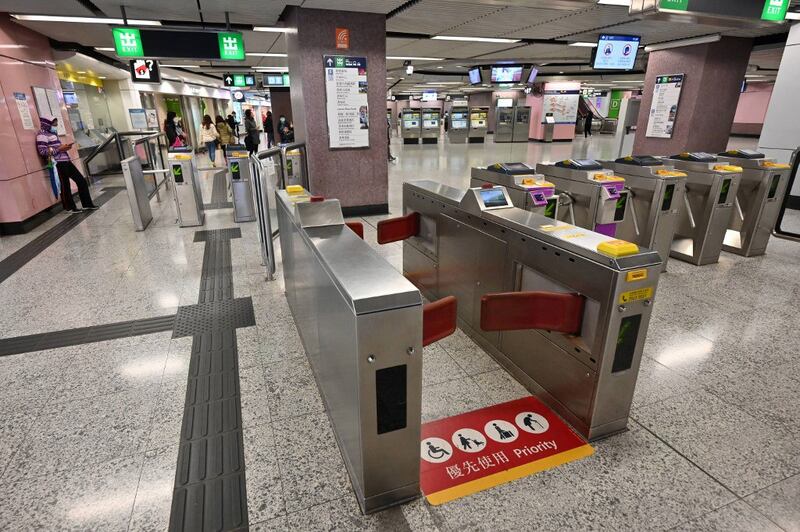Hong Kong leader Carrie Lam on Tuesday announced a citywide mass testing program in line with the ruling Chinese Communist Party (CCP)'s zero-COVID measures that include enforced quarantine and isolation in government facilities for those infected.
Lam said schools will close in March and April so hundreds of buildings can be used to deliver three compulsory PCR tests to the city's seven million residents, who will also be required to take rapid antigen tests in between the official tests.
She said tens of thousands of isolation beds will be made available in government facilities, some of which will be located in requisitioned, newly completed public housing, and in some 20,000 luxury hotel rooms across the city.
"We have reached a critical juncture," Lam said. "We have to take these measures."
All current flight bans and social distancing measures, including the use of the LeaveHomeSafe app for the vaccinated to gain access to stores and other public places, will remain in place until late April, she said.
Hong Kong reported 6,211 new confirmed cases and 32 deaths of COVID-19 patients on Tuesday, bringing the number of total deaths to 350 and total confirmed cases to more than 60,000.
Economist Law Ka-chung said the zero COVID policy imposed on the city by CCP leader Xi Jinping, who reportedly wants the current COVID wave over by the 25th anniversary of the city's handover to China on July 1, will have a huge impact on the economy, especially on foreign investor confidence.
"Foreign investors ... aren't leaving for no reason," Law said. "They see that they are doing is unreasonable, and they wonder how they are supposed to live here, to do business here?"
"The government can lock us down; it can do what it likes, but people are going to be asking those questions."

Bankers pull out
James Riley, CEO of the luxury Mandarin Oriental hotel, has been quoted as saying that the pandemic control measures have made Hong Kong a "poor" location to work, while reports have also surfaced that Pernod Ricard and Citibank are withdrawing large numbers of staff from the city.
Meanwhile, Daiwa Securities recently predicted that more than U.S.$100 billion in capital will leave the city over the next 24 months, most of it going in 2022, following a net capital outflow of U.S.$48 billion in 2021.
Experts at the University of Hong Kong (HKU) have estimated that if the current round of social distancing measures remains in place, the current wave will likely peak sometime in March, with some 70,000 people infected every day, nearly 3,000 needing hospital treatment and around 100 people dying every day.
According to their forecast, some 625,000 people will be infected during the peak, with 1.9 million close contacts needing to be held in isolation facilities.
Meanwhile, Bloomberg reported that Beijing is putting pressure on Lam's administration for a full lockdown, also Lam denied that would happen during her news conference on Tuesday.
It quoted sources familiar with the ongoing conversation between Hong Kong and Chinese officials as saying that officials believe a lockdown will be more effective at containing virus cases in a shorter period of time.
Elderly vulnerable
Hong Kong authorities have insisted a wholesale, full-city lockdown won’t be possible, but did say they would lock down areas where infections were concentrated, the report said.
Mainland Chinese respiratory disease expert Zhong Nanshan said the main reason for the country's zero-COVID strategy is to prevent large numbers of deaths among the elderly.
"Confirmed cases cannot stay home," Zhong said in a video message to Hong Kong. "They must be isolated somewhere else."
"At present, Hong Kong is facing a lot of difficulties. But I believe such difficulties will be temporary,” said Zhong.
Makeshift hospitals at are currently under construction at the Kai Tak cruise terminal and Penny’s Bay, but the city's government should also consider using sports centers and convention centers if necessary, he said in comments reported by government broadcaster RTHK.
He said China's ideology regarding COVID-19 is different from other countries'.
"We will not allow a large number of elderly people to die of natural infection. Therefore our policy of ‘dynamic clearance' remains unchanged," he said, calling for more vaccinations and boosters for all, especially the elderly.
Translated and edited by Luisetta Mudie.
